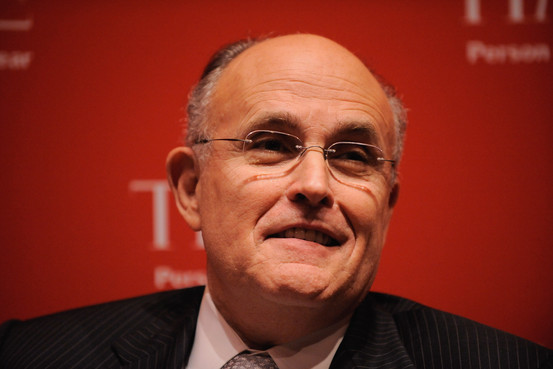Just as we thought that we had heard the last of Manuel Noriega, he is back with a lawsuit that has made headlines, kind of.
Rudy Giuliani says former Panamanian strongman Manuel Noriega’s lawsuit against the makers of “Call of Duty: Black Ops II” could have chilling speech implications for videogames, movies, TV shows, books and other media that weave real-life historical figures into fictionalized stories.
Mr. Giuliani, former New York City Mayor who is now at Bracewell & Giuliani LLP, is defending his newest client, Activision Blizzard Inc.ATVI -1.48% against claims by the convicted drug-trafficker that the company unlawfully exploited his likeness in its best-selling, first-person shooter game released in 2012.
The company on Monday announced that it had retained the former Republican presidential contender and federal prosecutor as co-counsel. That day, it also filed a motion in Los Angeles County court seeking to dismiss Mr. Noriega’s complaint under California’s anti-SLAPP statute, a law intended to discourage lawsuits that suppress legitimate speech on issues of public concern.
Mr. Noriega sued Activision in July, claiming the company incorporated him into the game without permission, depicting him “as a kidnapper, murderer and enemy of the state,” according to his suit.
In an interview with Law Blog, Mr. Giuliani said he finds it “highly offensive that one of the most notorious criminals in the word … is trying to recover money in a Los Angeles court.”
William T. Gibbs, a trial lawyer in Chicago who is representing Mr. Noriega, declined comment.
Mr. Noriega, 80 years old, ruled Panama from 1983 to 1989. He was overthrown by a U.S. invasion in 1989 and served 21 years in prison in the U.S. and France for drug trafficking and money laundering before being extradited to Panama in 2011.
“Defendants’ unauthorized and unlawful use of Plaintiffs name and likeness was willful, intentional, and knowing and was done for the direct purpose of profiting off of and gaining a commercial benefit through the popularity and sales of BLACK OPS II,” Mr. Noriega’s lawsuit says.
Court fights over the “right of publicity” of real people depicted in video games have become more common.
In a closely watched case, a federal appeals court last year refused to throw out a lawsuit brought by a former Nebraska and Arizona State quarterback Sam Keller and other ex-athletes, who alleged that EA used their attributes in its NCAA football and basketball games.
EA’s lawyers had argued the depiction of college players in its games was covered under the First Amendment. But the 9th U.S. Circuit Court of Appeals disagreed, holding that EA’s use of a player’s likeness, isn’t shielded by the First Amendment “because it literally recreates Keller in the very setting in which he has achieved renown.” The parties settled the litigation in June.
Mr. Giuliani, who said he’s watched but hasn’t played the game, said the football game case is different from Mr. Noriega’s lawsuit.
“Noriega’s claims are audacious. If credited, they would give numerous historical and political figures—as well as their heirs—a veto right over their appearance in imaginative works of art set in historical contexts,” Activision’s brief said. “That veto right would cover not only videogames, but other constitutionally protected works, including movies, TV shows, and books.”
It’s not the first time that Mr. Giuliani’s legal career and Mr. Noriega have intersected. When he was Manhattan U.S. attorney in the late 1980s, the Justice Department was investigating the then-military ruler’s links to drug traffickers.
When he joined White & Case LLP in 1989, the firm’s work for Panama’s government became a campaign issue. At the time, he said he hadn’t been aware that the firm had acted as a foreign agent for Panama’s government. The firm that year said it would sever ties with the government so as long as it was controlled by Mr. Noriega.

